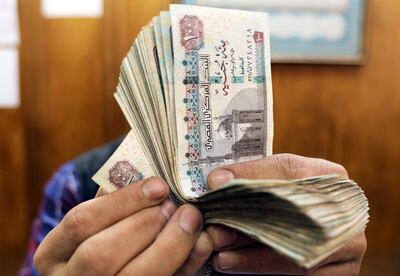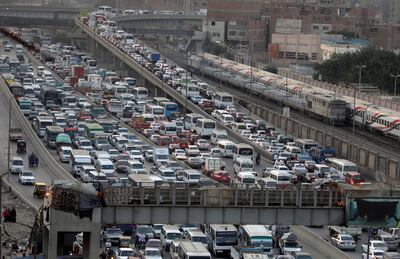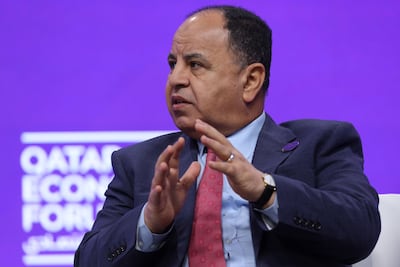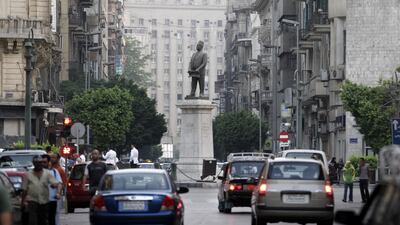Struggling to ease a foreign currency crunch, Egypt has announced a programme that will allow citizens living abroad to import cars into the country, paying customs and other taxes due on the vehicles in dollars, for which they will receive a rebate in Egyptian pounds five years later.
Finance Minister Mohammed Maait said the scheme will go this week to Egypt's Parliament, which is likely to approve it and then send it to President Abdel Fattah El Sisi to be signed into law.
Egyptians living abroad will have a one-off, four-month window to import cars under the planned programme.
The programme is likely to net the government about $2.5 billion, Mr Maait said.
Egypt has suffered a foreign currency crunch since Russia’s invasion of Ukraine in February. The uncertainty created by the conflict triggered an exodus of about $20bn from Egypt’s once-lucrative debt market.
A soaring import bill, mainly for fuel and food, has deepened the shortage of foreign currency, in addition to causing an initial slump in tourism revenue.

The fallout from the war forced Egypt to devalue its currency by 14 per cent in March. It has since allowed its embattled pound to shed about 6 per cent more of its value.
Egypt has also entered negotiations with the International Monetary Fund to secure a loan as part of an economic restructuring programme that includes a more flexible foreign exchange mechanism.
The negotiations with the Washington-based lender are at an advanced stage and a deal is widely thought to be imminent. No official word on the exact size of the loan is available, but officials have suggested less than $10bn.
Mr Maait said that those eligible for the programme include anyone with a residence permit in a foreign country and a bank account opened at least three months ago.
The dollar deposits made by people importing cars must be made upfront and will be guaranteed by the treasury, he said.
The rebate in Egyptian pounds will be calculated at the exchange rate prevailing five years to the day the deposit is made.

The imported cars can be sold by their owners without any restrictions, he said.
The programme was announced as the retail car market in Egypt reels from the foreign currency shortage that has greatly reduced imports. The price of cars available on the market has gone up by 50 per cent or more in the past few months, putting them out of reach for many Egyptians.
Cars imported under the plan could number up to 500,000, estimates suggest, a significant jump on the 150,000 normally imported annually. That number is likely to bring down the price of cars in the local retail market.
The foreign currency crunch has also hit manufacturers across the board, with many businesses contending that there was hardly anything made locally without a foreign component.
Last week, poultry businesses complained of a shortage of chicken feed that may force them to shut. The shortage has already sent the price of eggs soaring.
Mr El Sisi earlier this month promised to gradually clear the months-long backlog of goods held at the country’s ports waiting for banks to pay their foreign currency value so they can be released to importers. The backlog, however, is unlikely to be cleared for several more months.
“They released about 20 per cent of the goods I imported and have been held at the port in Alexandria for months,” said an industrialist who did not want to be identified.
“But they never consulted us on which part of our shipment that we needed the most and paid for secondary items that don’t help us much.”
Meanwhile, authorities have dimmed streets and government buildings' lights in much of Cairo and other major cities to save energy and make more liquefied gas available for export to gain foreign currency.
Egypt is already exporting $600 million worth of gas to Europe every month, Mr Maait said, adding that the government plans to increase that to $1bn next year.



